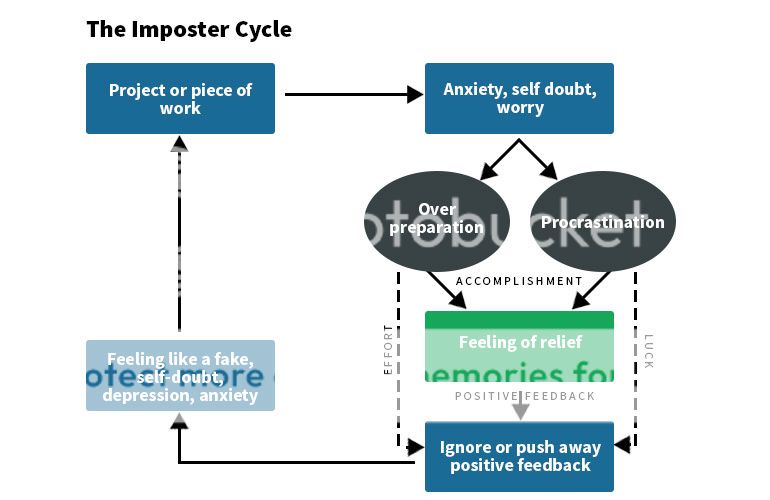70% of millennials experience the impostor syndrome. So what is the impostor syndrome exactly and how can you overcome it?
The International Journal of Behavioral Science described the Imposter Syndrome as “the experience of intense feelings that achievements are undeserved and the worry that one will be exposed as a fraud.”
The Syndrome was first termed in the 1970s by psychologists Suzanne Imes and Pauline Rose Clance. They explained that the impostor phenomenon occurs when a high achiever is unable to internalize and accept their success. Accomplishments are attributed to luck instead of ability or working hard. They fear that others will eventually unmask them as a fraud.
Emma Watson shared, in a Vogue magazine interview, that she felt like an ‘imposter’ and had ‘really wrestled’ with her success. About her acting she said: ‘I just did it. I just acted. It was just there’. Regarding her key speech for the HeForShe campaign as a UN Women Goodwill Ambassador she admitted she was ‘terrified’.
And she is not alone. 70% of millennials experience the impostor syndrome. Millennials might feel Impostor Syndrome more as they’ve entered the workforce at a time of outrageous technological advancements and constant comparison on social media.
This image shows the cognitive cycle that underlies the imposter syndrome:

The good news is that you can turn this effect around.
• Recognize your feelings and check your thoughts
Recognize when your ‘imposter feelings’ emerge and when they do try to objectively compare your feelings to the situation. Can you justify your feelings? Let’s say you received great feedback on a project you completed. Did you do everything the client of your boss expected of you (or even more)? Did you move mountains to complete the project? Or did you slack off? If you slacked, would you have gotten that great feedback?
To get an objective view, you can also ask a friend or coworker to evaluate the situation with you. Crush those thoughts!
• Everyone fails and nobody knows what they are doing
Realize that everbody fails at some point. Even the most successful people or businesses have failed at some point. Realize that it is normal to make mistakes and that you can achieve goals despite them.
• Your success is not just luck
Accept that your achievements would not be possible without your skills, your thoughts, your talent or your hard work. Luck plays great role in success but it is not the whole story. Many people who have been born into the wealthiest families and privileged environments, still screw up.
• Stop comparing
Accept that there will be always someone better than you. But that does not mean you can’t add value in your own way. If you have success with what you are doing, there is a market that values you.
The key to overcoming the Imposter Syndrome seems to be ‘acceptance’. Don’t let your thoughts hold you back from reaching for the stars. Make sure to thrive despite of these thoughts.






